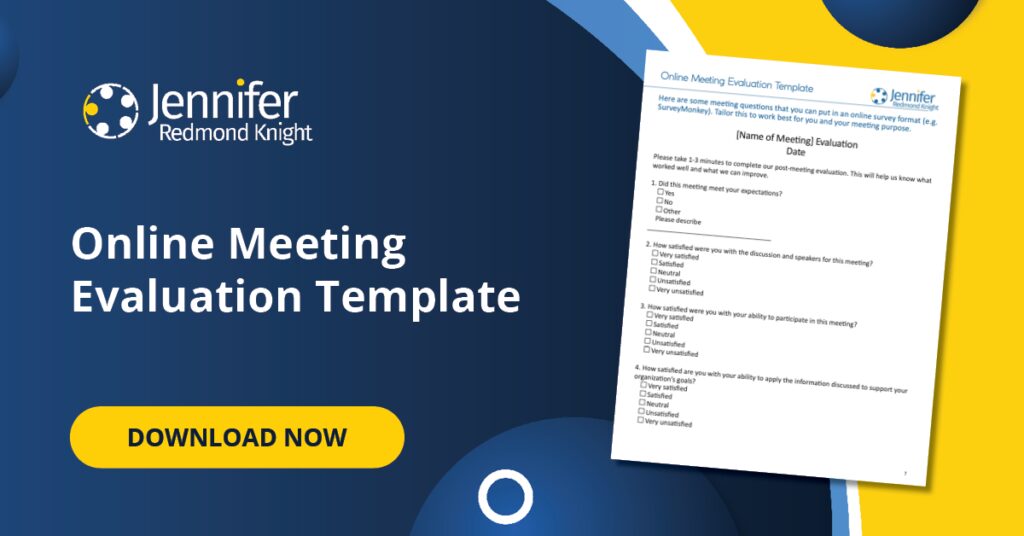The word evaluation can elicit excitement, curiosity, confusion and dread. When working with coalitions, evaluation is a necessary part of the work, but the way we do evaluation varies considerably depending upon the experience of the coalition leaders, resources available, requirements from funders, and interests of the coalition. Join me this week as I provide three evaluation considerations for coalitions.
Don’t wait until the end.
One of the most common approaches to evaluation in coalition work is to plan and implement a project and then develop an evaluation plan. Although you may not know all the project details when you begin, you can reflect upon what success looks like, what you want to learn from implementation and how you want to engage your members on providing feedback. When you ask questions about your vision for the end of the project, you can better inform your project plan and expectations. As you are implementing a project, you may also add new questions or reflections to support evaluation efforts. Additionally, you may want to include some mid-point evaluation to check in on progress and make adjustments as needed to finish your project well.
Consider what you will do with it.
When developing evaluation plans, it is easy to get carried away with potential data elements. While you may be able to collect a lot of information on all aspects of your project, one of the most important evaluation considerations is what you will do with this information. One of my favorite evaluation resources is the CDC Evaluation Framework and this part of the framework focuses on “utility.” When you are discussing evaluation possibilities with those who have an interest in the evaluation results, keep asking what you are going to do with the information as a filter for decision making.
Involve more than evaluation experts.
One of the most common misconceptions about evaluation is that the only people who need to be involved are those who have evaluation expertise. While you want people with this skill set, if you are going to evaluate what really matters in your coalition, you need to include those who are part of your coalition who are not evaluators. You want to find out what is important and what success looks like from other staff members, your coalition leaders and your coalition members. Take time to ask questions that help you understand the process components of evaluation efforts (e.g how the partnership or infrastructure is working) as well as the outcome efforts (e.g. the positive health or social change you want to achieve).
Application: As you think of your coalition efforts, what are some meaningful and feasible areas you can evaluate? How will you include those who have an interest in the evaluation?
One of the most common ways to evaluate your efforts is to include a post-meeting evaluation. Check out my free online meeting evaluation template that you can tailor for your coalition context.

Photo by Scott Graham on Unsplash
